Christian rock is a form of rock music that features lyrics focusing on matters of Christian faith, often with an emphasis on Jesus, typically performed by Christian individuals. The extent to which their lyrics are explicitly Christian varies between bands. Many bands who perform Christian rock have ties to the contemporary Christian music labels, media outlets, and festivals, while other bands are independent.

Richard Wayne Penniman, known professionally by the stage name Little Richard, was an American singer, songwriter, and pianist. He was an influential figure in popular music and culture for seven decades. Described as the "Architect of Rock and Roll", Richard's most celebrated work dates from the mid-1950s, when his charismatic showmanship and dynamic music, characterized by frenetic piano playing, pounding back beat and powerful raspy vocals, laid the foundation for rock and roll. Richard's innovative emotive vocalizations and uptempo rhythmic music played a key role in the formation of other popular music genres, including soul and funk. He influenced singers and musicians across musical genres from rock to hip hop; his music helped shape rhythm and blues for generations.

The Cars were an American new wave band formed in Boston in 1976. Emerging from the new wave scene in the late 1970s, they consisted of Ric Ocasek, Benjamin Orr, Elliot Easton, Greg Hawkes (keyboards), and David Robinson (drums). Ocasek and Orr shared lead vocals, and Ocasek was the band's principal songwriter and leader.

‘Live’ Bullet is a live album by American rock band Bob Seger & the Silver Bullet Band, released in April 1976. It was recorded at Cobo Hall in Detroit, Michigan, during the heyday of that arena's time as an important rock concert venue. The album is credited, along with Night Moves, with launching Seger's mainstream popularity.

Robert Clark Seger is a retired American singer, songwriter, and musician. As a locally successful Detroit-area artist, he performed and recorded as Bob Seger and the Last Heard and the Bob Seger System throughout the 1960s, breaking through with his first album, Ramblin' Gamblin' Man in 1969. By the early 1970s, he had dropped the 'System' from his recordings and continued to strive for broader success with various other bands. In 1973, he put together the Silver Bullet Band, with a group of Detroit-area musicians, with whom he became most successful on the national level with the album Live Bullet (1976), recorded live with the Silver Bullet Band in 1975 at Cobo Hall in Detroit, Michigan. In 1976, he achieved a national breakout with the studio album Night Moves. On his studio albums, he also worked extensively with the Alabama-based Muscle Shoals Rhythm Section, which appeared on several of Seger's best-selling singles and albums.

William Everett Preston was an American keyboardist, singer and songwriter whose work encompassed R&B, rock, soul, funk, and gospel. Preston was a top session keyboardist in the 1960s, backing Little Richard, Sam Cooke, Ray Charles, the Everly Brothers, Reverend James Cleveland, the Beatles and the Rolling Stones. He gained attention as a solo artist with hit singles "That's the Way God Planned It", the Grammy-winning "Outa-Space", "Will It Go Round in Circles", "Space Race", "Nothing from Nothing", and "With You I'm Born Again". Additionally, Preston co-wrote "You Are So Beautiful", which became a #5 hit for Joe Cocker.

Harvest Moon is the 19th studio album by Canadian musician Neil Young, released on November 2, 1992. Many of its backing musicians also appeared on Young's 1972 album Harvest.

David Thomas Mason is an English singer-songwriter and guitarist from Worcester, who first found fame with the rock band Traffic. Over the course of his career, Mason has played and recorded with many notable pop and rock musicians, including Paul McCartney, George Harrison, the Rolling Stones, Jimi Hendrix, Eric Clapton, Michael Jackson, David Crosby, Graham Nash, Steve Winwood, Fleetwood Mac, Delaney & Bonnie, Leon Russell, and Cass Elliot. One of Mason's best known songs is "Feelin' Alright", recorded by Traffic in 1968 and later by many other performers, including Joe Cocker, whose version of the song was a hit in 1969. For Traffic, he also wrote "Hole in My Shoe", a psychedelic pop song that became a hit in its own right. "We Just Disagree", Mason's 1977 solo U.S. hit, written by Jim Krueger, has become a staple of U.S. classic hits and adult contemporary radio playlists.

Slow Train Coming is the 19th studio album by American singer-songwriter Bob Dylan, released on August 20, 1979, by Columbia Records. It was Dylan's first album following his conversion to Christianity, and the songs either express personal faith, or stress the importance of Christian teachings and philosophy. The evangelical nature of the record alienated many of Dylan's existing fans; at the same time, many Christians were drawn into his fan base. Slow Train Coming was listed at No. 16 in the 2001 book CCM Presents: The 100 Greatest Albums in Christian Music.
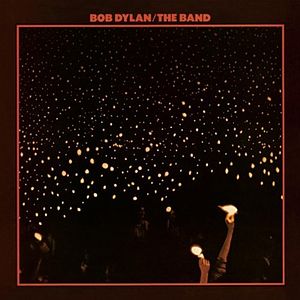
Before the Flood is a live album by American singer-songwriter Bob Dylan and The Band, released on June 20, 1974, on Asylum Records in the United States and Island Records in the United Kingdom. It was Dylan's first live album, although live recordings of earlier performances would later be released. It is the 15th album by Dylan and the seventh by the Band, and documents their joint 1974 American tour. It peaked at No. 3 on the Billboard 200, reached No. 8 on the popular album chart in the UK, and has been certified Platinum by the Recording Industry Association of America.
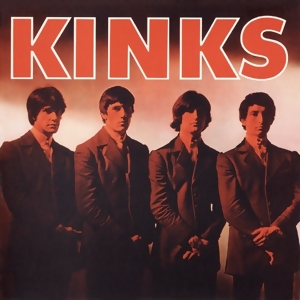
Kinks is the debut studio album by the English rock band the Kinks. It was released on 2 October 1964 in the United Kingdom by Pye Records. The original United States release, issued by Reprise Records on 25 November 1964, omits three tracks and is instead titled You Really Got Me.
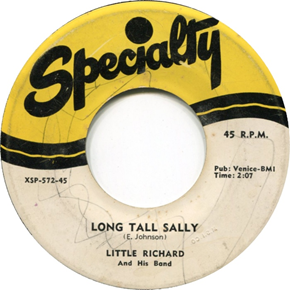
"Long Tall Sally", also known as "Long Tall Sally (The Thing)", is a rock and roll song written by Robert "Bumps" Blackwell, Enotris Johnson, and Little Richard. Richard recorded it for Specialty Records, which released it as a single in March 1956, backed with "Slippin' and Slidin'".
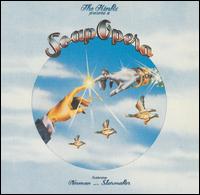
Soap Opera or The Kinks Present a Soap Opera is a 1975 concept album by the Kinks. It is the fourteenth studio album by the Kinks.

Tutti Frutti is a song written by Little Richard and Dorothy LaBostrie, recorded in 1955, which was his first major hit. With its energetic refrain, often transcribed as "A-wop-bop-a-loo-mop-a-lop-bam-boom!", and its hard-driving sound and wild lyrics, it became not only a model for many future Little Richard songs, but also for rock and roll itself. The song introduced several of rock music's most characteristic musical features, including its loud volume, powerful vocal style, and distinctive beat and rhythm.

Jesus of Cool is the solo debut album by British singer-songwriter Nick Lowe. Produced by Lowe, it was released in March 1978 by Radar Records in the UK.

Low Budget is the eighteenth studio album by English rock group the Kinks, released in 1979. Following the minor success of their 1978 album Misfits, the band recorded the majority of the album in New York rather than London. Unlike the more nostalgic themes of many Kinks albums prior to Low Budget, many of the album's songs allude to contemporaneous events. Musically, the album is a continuation of the band's "arena rock" phase, resulting in a more rock-based sound and more modern production techniques.
The 38th Annual GMA Dove Awards were held on April 25, 2007 recognizing accomplishments of musicians for the year 2006. The show was held at the Grand Ole Opry House in Nashville, Tennessee, and was hosted by Brian Littrell, Natalie Grant, and Donnie McClurkin. This was the first year in which the awards were called the "GMA Dove Awards" since the 2006 edition was called the "GMA Music Awards".

Bob Bennett is an American contemporary Christian music singer, guitarist and songwriter from Downey, California. Bennett is known for his distinctive baritone voice, Christian lyrics and folk-inspired guitar playing.
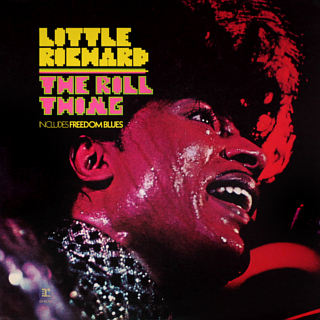
The Rill Thing is Little Richard's first album for Reprise Records, released in August 1970. It was considered a comeback album for Richard, following a three-year hiatus on new albums and an acclaimed performance at Atlantic City Pop Festival. The album utilizes a soul-influenced sound and contains Little Richard's biggest post-Specialty single in "Freedom Blues", which broke the Billboard top 50. The follow-up single, "Greenwood, Mississippi" made the top 100 and number 56 on Cashbox Black Singles. Despite the success of the singles, the album failed to chart.

Flamingo is the second studio album by the rock band the Flamin' Groovies. It was released in 1970. Following the group's departure from the Epic record label, it was the first of their two albums for Kama Sutra Records.

















